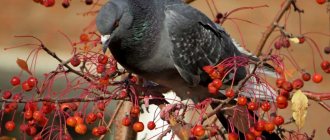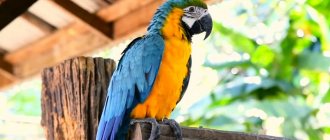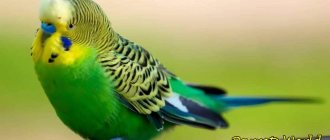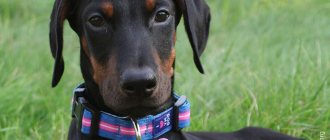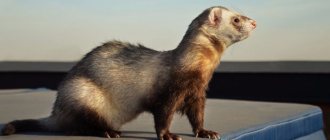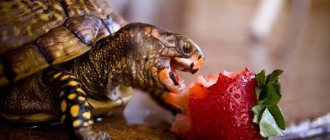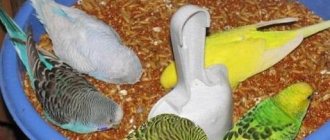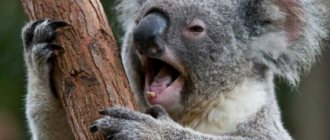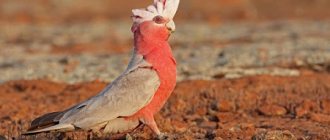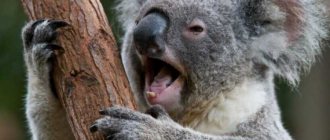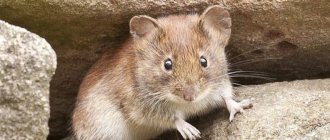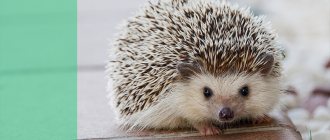Information about what cockatiels eat is not secondary. While caring for these capricious birds, owners share invaluable experience with each other. Thus, in practice, information has been collected on those food products that are necessary in the diet and those that are harmful to bird health. As part of the article, we will talk about the nutrition of wild cockatiels, and then we will look in detail at how to feed a domestic parrot.
Feeding wild parrots
In their natural habitat, Australian cockatiels inhabit groves of eucalyptus trees, savannas, thickets of bushes and branches of dead trees.
What do cockatiels eat in the wild? They mainly feed on seeds of grasses and trees, nectar of flowering eucalyptus trees, and small insects. They can fly into agricultural wheat fields.
To quench their thirst, they descend directly onto the water of reservoirs and, after taking a few sips, soar up.
Sprouts
During the growth process, shoots have a maximum concentration of useful elements. Therefore, be sure to include sprouted food in your poultry menu.
Recommendations:
- You can use both components from dry grain mixtures and separately sold grains for germination: mung bean, chickpeas, beans, lentils, beans
- Store the finished sprouts in the refrigerator.
- Before offering the sprout, it must be washed with water.
- The most delicious sprouts are 4-6 mm, then they begin to taste bitter.
What to feed your cockatiel at home
In order for a bird to be active, healthy and cheerful, it must receive all the necessary nutrients from its food. Therefore, it is important for the owner of a pet parrot to know what to feed the cockatiel and how to balance its diet to make it nutritious and varied.
Hard food
Corellas are granivorous parrots, so grain food is the basis of their diet. It can be purchased at pet stores, or you can make mixtures yourself. The main thing is that they contain high-quality grains of oats, wheat, millet of different varieties, barley, and corn.
Before you give your pet a commercial grain mixture, check whether the manufacturer offers high-quality cockatiel food. To do this, try to germinate the grain by filling it with warm water and placing it in a warm place. If on the second day after soaking in water, sprouts begin to hatch on most of the grains, then the grain is “alive” and you can feed it to your cockatiel.
In the same way, check the grain before you prepare the mixture for your pet yourself. Of course, the grain mixture should not contain mold or black spots, and it should not smell musty.
Attention! Do not feed parrots with grain alone; diversify their diet with other foods.
If you prepare the mixture yourself, crush the grain - this will make it easier for the parrot to digest and assimilate it. You can feed your cockatiel whole grains, just soak them in water first.
DIY grain mixture recipe for cockatiels: millet and oat grains (30 grams each), sunflower and canary seeds (10 grams each), wheat grains and corn (5 grams each), flax and hemp seeds (1 gram each), weed seeds herbs (3 grams).
Seeds and nuts
The seeds enrich the diet of birds well with useful substances, but you need to be careful with them. For example, you should not feed your cockatiel too often with sunflower seeds - they are too fatty and high in calories for them. The bird can receive such food no more than once a week, and the seeds must be raw.
Parrots love to eat pumpkin seeds, flax seeds, wildflower seeds, sesame seeds, safflower seeds, hemp seeds and canola seeds.
Nuts should also act as a delicacy, and not as a main product in the diet - their amount should not exceed 5% of the total weight of the feed. Corella can be fed walnuts and almonds, peanuts, hazelnuts, and pistachios.
If the nut is large, just crack it - your pet will be happy to pull the nut out from under the shell. Small ones will need to be completely shelled.
Vegetables
Wet food, most of which consists of vegetables, provides the cockatiel with vitamins, minerals, and fiber that are important for life.
- Carrots are a storehouse of vitamins, especially vitamin A, the deficiency of which causes diseases in cockatiels. The carrots are washed and cleaned of dirt, cut into medium-sized slices and given to the parrot. It is also good to give carrot tops that have been previously washed to remove dirt.
- Cabbage is given in pieces or whole leaves. If your parrot molts, cabbage should be given daily.
- Sweet pepper also improves the bird's plumage, as well as the condition of its bones and beak. The vegetable can be given along with seeds.
- Cucumbers are an excellent source of nutrients and water. Fresh cucumbers will improve the absorption of other types of feed. Cockatiels eat this vegetable with pleasure.
Daily norm
A couple of level tablespoons of grain mixture or, to put it another way, 40 grams will be enough per day. If you are planning a grain-based treat - honey briquettes, then the amount of grain food needs to be reduced, because otherwise you risk feeding your pet. During the period of active growth and hatching of offspring, the norm can be increased to 60 grams.
It is advisable to feed the bird 2 times a day to avoid overeating.
Please note that in natural conditions, individuals are awake for 15 hours, while being in active movement. Therefore, if the daylight hours are short, it is necessary to take care of artificial lighting since the cockatiel does not eat in the dark. If the daylight hours are not artificially lengthened, there is a risk that the parrot may become exhausted.
What do cockatiels eat besides food?
Depending on what period your parrot is going through (adulting, nesting, feeding chicks, molting, or recovering from an illness), its diet should contain a variety of supplements that complement the main food. They are also needed by a completely healthy bird that does not experience any serious shocks to its health.
Vitamin supplements
Vitamins are needed every day if you want your bird to remain healthy and delight you with its well-groomed appearance. During illness, it is justified to carry out vitamin therapy, which allows you to quickly compensate for vitamin deficiency.
- Vitamin A maintains good vision, strengthens the nervous system, is necessary for the proper formation of the body, and protects against candidiasis, from which young birds suffer most. This vitamin is found in red and orange vegetables, as well as leafy greens. These foods should be fed to your cockatiel every day.
- Vitamin E is necessary during the breeding season, as it nourishes the reproductive system of birds. This vitamin is found in sprouts and boiled eggs.
- Vitamin D is an essential substance for the structure of the skeletal system and cartilage tissue. Fish oil and chicken egg yolk are sources of this vitamin available to your pet parrot.
- Vitamin K is an essential substance for blood clotting. The body can obtain it from salad greens, nettles, and cabbage leaves.
Mineral feed
To keep your pet's bones strong and his beak, claws and feathers healthy, he must regularly receive building elements. Let's look at what you need to feed your cockatiel parrot so that it gets the necessary minerals:
- egg shell is a source of calcium. It is thoroughly washed, dried, turned into powder, mixed with food and given to the parrot in this form;
- bone meal - a source of calcium, phosphorus and protein. It is better to mix it with wet food;
- sand for parrots - it is believed that it not only saturates with useful minerals, but also improves digestion;
- feed chalk is another source of calcium. It can be attached in one piece between the bars of the cage or mixed in crumbled form with sand and wet food (0.2 grams of chalk per day is enough);
- charcoal is a good help for poisoning. But you should not give it in unlimited quantities, since it is a sorbent that can remove not only harmful substances, but also useful ones. It is better to add a little bit into mineral mixtures;
- shell rock;
- sepia and mineral stone;
- calcium gluconate - no more than one tablet per day (in such quantities it is given to parrots during the nesting period).
Vegetables and fruits
The parrot needs the fruits of various plants as food. You can eat all vegetables without restrictions. As fruits, mangoes and persimmons should not be given to cockatiels because of their astringent properties. It is not advisable to introduce large quantities of walnuts into your cockatiel's diet: they are too fatty for the parrot's body. The fruits are cut into small pieces, each is introduced separately from the other and the reaction is checked. This feeding is given in small portions.
Cockatiels love almost all fruits eaten by humans - apples, pears, apricots. They also eat citrus fruits: oranges, tangerines, lemons. Corellas love berries: raspberries, currants, gooseberries.
Among vegetables, cockatiels prefer zucchini, pumpkin, and carrots. To replenish the body with protein, the parrot is given boiled lean meat. Other protein foods for cockatiels: boiled eggs, cottage cheese, milk.
Water mode
A parrot should always have water. Change the water in the sippy cup regularly (at least once a day). Wash the sippy cup thoroughly to remove deposits. If you have an open drinking bowl, make sure the water in it is clean. The disadvantage of this form is that food residues, husks, fluff, feathers and bird droppings constantly get into the water. Such water can poison the parrot, so it will have to be changed more often than once a day.
What can you give cockatiels to drink:
- still bottled water;
- bottled baby water;
- filtered;
- decoction of chamomile or rose hips;
- berry compotes;
- freshly squeezed fruit and vegetable juices.
Sample diet for a week
To ensure that your feathered friend is always healthy and active, he should be fed balanced mixtures. A parrot's diet directly depends on the time of year. Let's take a closer look at the weekly diet seasonally.
In winter, birds are fed according to the following scheme:
- Monday - soft food with a grain mixture, sprouted oats, millet and steamed corn.
- Tuesday – grain with dried nettles, sprouted wheat and oat sprouts.
- Wednesday – grain feed with a loaf of bread soaked in milk.
- Thursday – grain and soft mixture with pine flour, apples. The bird is also given a rosehip decoction.
- Friday – grain with pine or grass flour, nuts, oat sprouts, sprouted wheat, rosehip decoction, steamed corn, millet. Corn can be replaced with peas.
- Saturday – grain mixed with grass flour and grated beets. In addition, they also provide soft food.
- Sunday – grain feed with bananas and sprouted oats.
In spring, the bird’s diet remains virtually unchanged except for the addition of carrots, orange or tangerine slices, herbs and cottage cheese.
The summer diet looks like this:
- Monday – grain with white bread soaked in sweet tea, cottage cheese, dandelion or clover leaves.
- Tuesday – grain mixture with soft food and lettuce.
- Wednesday – grain feed with dandelion leaves, slices of fresh cucumber or tomato.
- Thursday – grain with apple pieces and unripe dandelion seeds.
- Friday – grain with soft food and white crackers soaked in milk. Additionally, the bird is fed with dandelion and spinach leaves.
- Saturday - grain feed, supplemented with grated carrots and chopped nuts, woodlice and dandelion leaves.
- Sunday – grain mixture with cabbage and lettuce leaves. Additionally, the bird is treated to berries and pear slices.
The autumn diet is very similar to the summer one. Only grape berries, spruce needles, rowan berries, dry cookies, dried nettles and sprouted wheat are additionally added to it.
What not to give
You already know what to feed your cockatiel parrot. Try to follow these recommendations. Sometimes you will be tempted to give something from your table. Therefore, it is important to know what you should not give to your pets under any circumstances, so as not to harm their health:
- fish and seafood;
- dairy products (cheeses, milk, cream, butter);
- papaya, mango, avocado, persimmon;
- candied fruits;
- potatoes, hot peppers, eggplants;
- spicy herbs (parsley, dill), as well as sorrel, garlic, rhubarb, onions;
- mushrooms - they are quite difficult for humans to digest; they are generally dangerous for a parrot;
- poplar, oak, pear branches, bird cherry.
Human food is dangerous for parrots. You should not feed your cockatiel food from your table, as well as fatty and fried foods, chocolate, marinades, sausages, coffee, cocoa, and especially alcohol.
Fresh herbs
A natural source of fiber and vitamins. You can make bouquets of greenery and place them next to the feeder. The cockatiel will happily gut this bunch.
Take precautions! Be sure to pour boiling water over the product before serving. Beware of ticks and other parasites.
For greens, non-spicy herbs without specific odors are suitable. The ideal option is beet and carrot tops.
Nutrition during illness
When a pet gets sick, its body is subjected to enormous stress. During this period, it is necessary to reduce the calorie content of the cockatiel's diet. Give more greens, constantly drink water. With various diseases, the first thing that happens to parrots is dehydration. This condition is extremely dangerous for birds and can lead to their death. Therefore, drink high-quality water, rice and chamomile decoctions.
- For problems with the thyroid gland, cockatiels are recommended to drink a decoction of calendula flowers and willow bark.
- For diarrhea in a parrot, you can give water with enterosorbents, a decoction of chamomile or fennel flowers.
- In the spring, many parrots begin to molt and their appetite worsens. What does the cockatiel parrot eat and drink during this period? Products containing vitamins, drinking decoctions of plantain leaves or St. John's wort.
- Strongly brewed black tea helps to cope with blood supply disorders.
Domesticated cockatiels live much longer than their relatives - and all thanks to their owners. People take care of their pets, create optimal living conditions for them, and provide quality care. Having figured out what parrots like to eat and what to feed your cockatiel at home, you can create all the conditions for your pet to live with you as long as possible.
Watch this video about the features of feeding a cockatiel parrot at home, in it you will find a lot of useful information:
What products are prohibited?
Parrots should not be given fried, smoked or spicy foods, including foods from the human table. When preparing cereals or mixing food, it is unacceptable to use salt and seasonings. High fat foods should also be avoided.
Foods prohibited for parrots:
- potato;
- mango;
- papaya;
- mushrooms;
- onion garlic;
- avocado;
- apple seeds;
- sorrel;
- rhubarb;
- eggplant.
